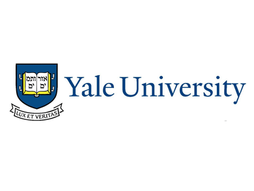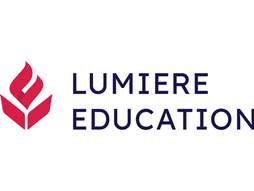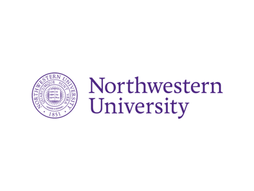15 Prestigious Research Opportunities in Colleges for High School Students
Prestigious research programs at top universities offer high school students the chance to explore college-level academics, gain practical skills, and connect with industry professionals—all at no cost.
These selective programs, with acceptance rates below 10%, provide hands-on research experiences and mentorship from distinguished faculty. Designed for students interested in fields like STEM and humanities, they help build strong resumes and prepare for future academic goals.
Hosted exclusively by prestigious colleges, many of these programs are fully funded, making them an accessible option for talented students.
Below, we’ve listed 15 of the top fully funded + selective research opportunities that stand out for their academic rigor and overall experience. If you're looking for more prestigious summer programs, internships, and region-specific opportunities in STEM, check out this set of blogs!
Location: Massachusetts Institute of Technology, Cambridge, MA
Cost/Stipend: No cost
Eligibility: Rising seniors worldwide who meet exceptional academic criteria
Application Deadline: December 11
Program Dates: June 22 – August 2
Acceptance Rate: Less than 5%
The Research Science Institute (RSI), hosted at MIT, offers a fully funded, six-week research program for rising seniors with a strong interest in STEM. The program starts with a week of coursework, led by MIT faculty, covering both foundational and advanced STEM topics. The next five weeks are focused on independent research, where you'll collaborate with mentors— scientists or researchers—in fields like computer science, engineering, and mathematics.
The program concludes with a professional research symposium, where you’ll present your findings through oral and written reports, preparing you for future academic research. This immersive experience combines mentorship, practical work, and academic rigor in a highly selective environment.
Location: Stanford University, Stanford, CA
Cost/Stipend: $40 application fee; stipends range from $500 to $1,500 based on financial need
Eligibility: High school juniors and seniors aged 16 and older
Application Deadline: February 22
Program Dates: June 9 – July 31
Acceptance Rate: 3%
The Stanford Institutes of Medicine Summer Research Program (SIMR) offers an 8-week opportunity for high school students interested in biomedical science. You’ll be paired with experienced mentors, including Stanford graduate students and postdoctoral researchers, to work on advanced research projects in eight specialized areas. The program is a prestigious research opportunity for high school students that is offered by a college and begins with an orientation and two weeks of lectures and lab sessions to build your knowledge. You’ll then conduct hands-on research in state-of-the-art labs, collaborate in lectures, and prepare for the capstone event: a research poster presentation. With an acceptance rate of just 3%, SIMR selects around 50 students each year, making it highly competitive. This immersive program requires a commitment of about 40 hours per week, providing both rigorous training and valuable experience.
Location: Stony Brook University, Stony Brook, NY
Cost/Stipend: No tuition fees; on-campus participants pay $2,360.25 + ~$500 additional meal costs.
Eligibility: High school juniors who are at least 16 years old
Application Deadline: February
Program Dates: June 30 – August 8
Acceptance Rate: Low
The Simons Summer Research Program at Stony Brook University offers high school juniors a chance to engage in advanced STEM research. You will work closely with mentors on projects in fields like biochemistry, neurobiology, computer science, and physics. During the application process, you’ll select your top three mentor preferences based on your academic interests. Over the six-week program, you’ll gain hands-on experience while learning laboratory and computational techniques. Since it is a prestigious research opportunity offered by a college for high school students, weekly lectures, workshops, and campus tours complement the research work. The program concludes with a symposium where you’ll present your findings through abstracts and posters to an academic audience.
Location: Washington University, St. Louis, MO
Cost/Stipend: Free program; participants receive a $4,500 stipend
Eligibility: Rising high school seniors from the Greater St. Louis area (Missouri and Illinois), particularly from under-resourced schools or underrepresented groups in STEM
Application Deadline: The application deadline is January 27, and recommendation letters are due February 3.
Program Dates: June 2 – July 25
Acceptance Rate: Low, with only 15–20 students selected per cohort
The Young Scientist Program’s Summer Focus at Washington University is an 8-week research initiative for high school seniors in the Greater St. Louis area, aimed at promoting diversity in STEM. You will be paired with mentors—graduate students, postdocs, or research staff—who will guide your independent projects in fields like genetics, microbiology, cancer biology, and biomedical engineering. Alongside research, the program offers tutoring, coursework in science communication, and college readiness workshops. With a full-time commitment of 40 hours per week, the program culminates in a symposium where you will present your findings to peers and mentors. This experience combines research, mentorship, and skill-building to prepare you for future success in STEM.
Location: Harvard Medical School, Boston, MA
Cost/Stipend: Free of charge; students receive a stipend (amount unspecified)
Eligibility: High school juniors and seniors from Boston or Cambridge, at least 16 years old, with a minimum GPA of 2.7. The program prioritizes students underrepresented in medicine or those facing disadvantages.
Application Deadline: February 3
Program Dates: June 30 – August 15
Acceptance Rate: Low, with a rigorous selection process
Harvard Medical School’s Project Success is a six-week paid internship for high school students from Boston and Cambridge interested in biomedical science. You will work in labs at Harvard Medical School or its affiliates, conducting research under the guidance of leading scientists and physicians. The program also includes academic seminars, site visits to hospitals and biotech companies, and workshops on writing, public speaking, and computer literacy. These activities offer a balanced experience, combining hands-on research with professional development. Project Success is a prestigious research opportunity for high school students on a college campus, which helps you build connections in the biomedical field, providing career insights and guidance for those interested in medicine and research.
Location: Northeastern University, Boston, MA
Cost/Stipend: Free; no stipend provided
Eligibility:
Permanent Massachusetts residents who live and attend school in MA year-round
Current juniors entering 12th grade in the fall
U.S. citizens or Permanent Residents
Application Deadline: February 20
Program Dates: June 23 – July 31
Acceptance Rate: Moderate, with an intensive selection process
The Young Scholars Program at Northeastern University offers Massachusetts high school students the chance to engage in advanced research in the Colleges of Engineering, Science, and Health Sciences. You will collaborate with faculty in research labs, gaining hands-on experience and contributing to projects like programmable signal acquisition and calibration of temperature sensors for detection of power dissipation on chips.
In addition to lab work, you will attend the Introduction to Engineering seminar series, covering topics such as robotics, chemical analysis, and microwave materials. The program also includes field trips and career counseling from the Department of Cooperative Education, helping you develop both technical and professional skills. This immersive experience provides valuable exposure to university-level research and mentorship, ideal for students interested in STEM careers.
Location: Rockefeller University, New York, NY
Cost/Stipend: Free of charge; travel expenses are covered, and need-based stipends may be available
Eligibility: High school juniors and seniors who are at least 16 years old at the program's start
Application Deadline: January 3
Program Dates: June 24 – August 7
Acceptance Rate: Approximately 32 students selected per cohort
The Summer Science Research Program (SSRP) at Rockefeller University offers high school students the chance to explore biomedical research. Each summer, 32 students join research teams, working with experienced mentors on specialized topics in the biomedical sciences. You will gain hands-on experience in a professional lab, mastering techniques, conducting experiments, and analyzing results. The program also includes elective science courses, guest lectures, and social events to enhance the experience. At the end of the program, you will present your findings at a formal research symposium, honing your presentation skills. SSRP provides invaluable exposure to cutting-edge science and prepares students for future research opportunities.
Location: New York University, New York, NY
Cost/Stipend: No cost; participants receive a $750 stipend
Eligibility: Rising high school juniors and seniors residing in New York City
Application Deadline: February 21
Program Dates: June 2 – August 8
Acceptance Rate: Moderate
The Applied Research Innovations in Science and Engineering (ARISE) program at NYU offers a ten-week research experience for New York City high school students entering 11th or 12th grade. You will work with NYU faculty on advanced research topics such as computer science, robotics, machine learning, and environmental engineering, gaining early exposure to cutting-edge methodologies.
The program is a prestigious research opportunity for high school students preparing for college, and begins with four weeks of remote workshops to build foundational STEM knowledge, followed by six weeks of in-person lab work under the guidance of experienced mentors. Additional activities, including panel discussions and professional development workshops, will help you refine both technical and soft skills. At the end of the program, you will present your findings to peers, mentors, and faculty. This no-cost program, with a stipend, provides a valuable opportunity for NYC students to explore careers in science and engineering.
Location: Johns Hopkins University, Baltimore, MD
Cost/Stipend: No cost
Eligibility: High school students residing in Baltimore City
Application Deadline: February 15
Program Dates: Typically June to mid-August
Acceptance Rate: Moderate intake
The Biophysics Research for Baltimore Teens (BRBT) program at Johns Hopkins University offers Baltimore City high school students a no-cost opportunity to explore biophysics and biomedical research. You will gain hands-on lab experience, learning techniques such as microbiology, DNA manipulation, and protein engineering while contributing to real experiments. The program also emphasizes mentorship and career exploration, with opportunities to interact with graduate students, postdoctoral researchers, and faculty. This experience provides personalized guidance and insights into academic and scientific career paths. BRBT is a valuable opportunity for students passionate about science, offering foundational research skills and exposure to biomedical sciences.
Location: University of Texas at Austin, TX (non-residential)
Cost/Stipend: Not specified, but need-based scholarships are available. Scholarships include a stipend and free tuition for HSRA.
Eligibility: Open to high school students aged 15 or older by June 1, with an interest in STEM fields.
Application Deadline: Opens in January.
Program Dates: June 9 – July 16.
Acceptance Rate: Moderate.
The High School Research Academy (HSRA) is a five-week research program at the University of Texas at Austin, offering hands-on experience in active College of Natural Sciences (CNS) labs. You will work on real research projects in fields like biochemistry, biology, neuroscience, genetics, and environmental science, collaborating with peers, undergraduates, and faculty mentors. In addition to lab work, you will attend weekly seminars featuring guest speakers from the UT community. The program also provides NSC 309 UT extension course credit, enhancing your academic portfolio. At the end of the program, you will present your research at the HSRA Research Symposium, showcasing your work and receiving a printed poster. HSRA offers valuable research experience and fosters collaboration within the UT Austin academic community.
Location: University of California, San Diego, CA, and virtual options available.
Eligibility: Open to rising 10th graders. While the program primarily serves students from San Diego County, applications from others are accepted if summer housing accommodations are arranged.
Cost: $1,500 for the program with a research project; free for participation without a research project.
Application Deadline: Tentatively March 15
Program Dates: Tentatively June 19 – August 11
Acceptance Rate: Moderate.
The Research Experience for High School Students at the University of California, San Diego, in partnership with the San Diego Supercomputer Center, is an 8-week program focused on computer science and artificial intelligence. You will collaborate with UCSD faculty mentors on research projects tailored to your interests, gaining hands-on experience in computational challenges. The program helps you develop key research skills, including hypothesis formulation, experimentation, and data analysis. By applying theoretical concepts to real-world problems, you will deepen your understanding of computer science. This immersive program provides a rigorous, supportive environment to inspire innovation and curiosity.
Location: Duke University West Campus, Durham, NC
Eligibility: High school sophomores, juniors, and seniors who are at least 15 years old by the program start date and reside in North Carolina within commuting distance of Duke University’s West Campus.
Application Deadline: February 9
Program Dates: June 16–August 8
Cost/Stipend: No cost; includes a paid internship (stipend amount unspecified).
Acceptance Rate: Moderately selective
The Duke University Neuroscience Experience (DUNE) is an eight-week paid internship that immerses high school students in neuroscience research. You will work closely with a professional scientist in a Duke University neuroscience lab on a dedicated research project, gaining valuable hands-on experience. This prestigious research opportunity is a college program for high school students that requires a full-time commitment of 40 hours per week, with a focus on research and scientific inquiry. In addition, you will attend workshops on college applications, career exploration, and opportunities in academia, medicine, and industry. The program concludes with a poster session where you present your research findings to peers, family, and faculty, refining your scientific communication skills. DUNE provides a supportive environment for students passionate about neuroscience, preparing them for future academic and professional pursuits.
Location: Stanford University (for local residents only)
Cost/Stipend: Free to participate. Need-based scholarships are available.
Eligibility:
Open to local residents of Alameda, San Francisco, San Mateo, Santa Clara, or Santa Cruz counties.
Applicants must be 16 or older by the start of the internship.
Must have an unweighted GPA of at least 3.0.
Prior knowledge of biology, chemistry, or computer programming (through coursework or extracurricular activities) is required.
Students from under-resourced high schools are strongly encouraged to apply.
Application Deadline: February 28
Program Dates: June 16 – August 7
Acceptance Rate: Low
The Genomics Research Internship Program for High School Students (GRIPS) at Stanford University offers an eight-week immersive experience in genomics research. You will work 20 hours a week (Monday through Friday, 9 AM – 1 PM) under the mentorship of experienced lab scientists, gaining hands-on experience in a professional research setting. The program includes weekly cohort sessions, career panels, and seminars on biomedical research, along with regular check-ins with your lab mentor to track progress and provide guidance. GRIPS is designed to provide early exposure to STEM research, helping you develop valuable skills while fostering interest in scientific careers. Priority is given to students from under-resourced schools, supporting their path toward a successful future in research and science.
Location: Texas Tech University
Cost/Stipend: Approximately $6,000, with need-based financial aid available (100% from external sources).
Eligibility: Open to high school juniors and seniors.
Application Deadline: February 15
Program Dates: June 22 – August 7
Acceptance Rate: Low
The Anson L. Clark Scholars Program offers a seven-week summer research experience for twelve high school juniors and seniors. You will collaborate with Texas Tech University faculty on hands-on research projects in your chosen field, with options in areas like cell and molecular biology, chemistry, computer science, economics, engineering, and history. The program provides a valuable opportunity to gain insights into the research process while developing academic and professional skills. To apply, you must submit an online application, short essays, high school transcripts, and test scores (PSAT if no other scores are available), along with three recommendations, including two from teachers. This competitive program prepares students for success in higher education and future careers.
15. Zuckerman Institute Brain Research Apprenticeships in New York at Columbia University (BRAINYAC)
Location: New York, NY
Cost/Stipend: Approximately $6,000, with need-based financial aid available (100% from external sources).
Eligibility: Open to 10th and 11th-grade students nominated by a partner organization, including S-PREP, Lang Youth Medical, Double Discovery Center, Columbia Secondary School, or BioBus.
Application Deadline: February 14
Program Dates: June 29 – August 8
Acceptance Rate: Low
The BRAINYAC program offers high school students the chance to engage in hands-on neuroscience research at Columbia University. You will work in state-of-the-art labs, gaining valuable experience in advanced research techniques alongside professional scientists. Throughout the program, you will develop essential laboratory skills, connect with experts, and explore the latest advancements in neuroscience. This immersive experience allows you to become part of the Columbia academic community while preparing for future STEM opportunities. BRAINYAC is an excellent way to gain real-world research experience and deepen your interest in scientific discovery.
One other option—the Lumiere Research Scholar Program
If you’re interested in pursuing independent research, consider applying to one of the Lumiere Research Scholar Programs, selective online high school programs for students founded with researchers at Harvard and Oxford. Last year, we had over 4,000 students apply for 500 spots in the program! You can find the application form here.
Also check out the Lumiere Research Inclusion Foundation, a non-profit research program for talented, low-income students. Last year, we had 150 students on full need-based financial aid!
Stephen is one of the founders of Lumiere and a Harvard College graduate. He founded Lumiere as a PhD student at Harvard Business School. Lumiere is a selective research program where students work 1-1 with a research mentor to develop an independent research paper.









